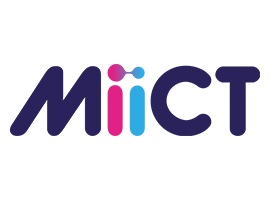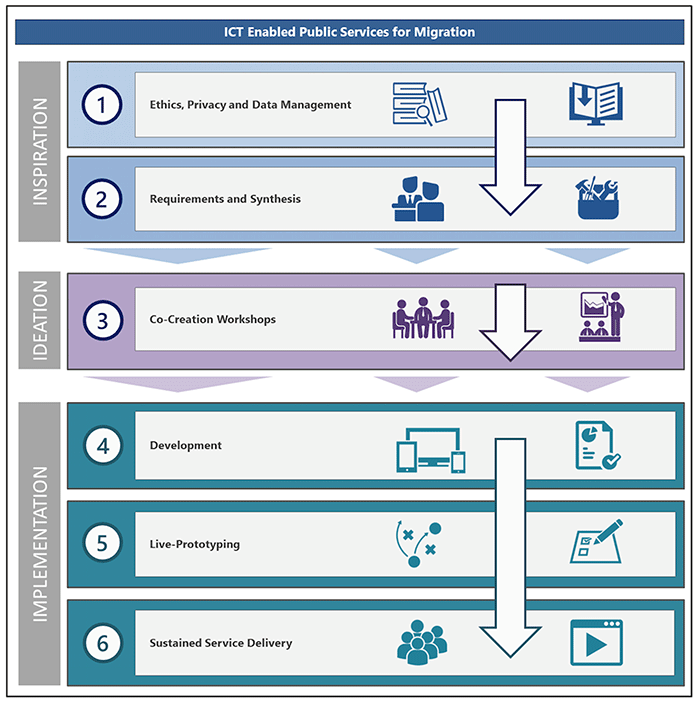
AT A GLANCE
An efficient management of migrant integration requires clear understanding of migrants’ personal and family situation, including their legal status, origin, cultural background, skills, language skills, health information, etc. Once such information is available to public authorities, it can improve societal outcomes to the benefit of both host countries and migrants.
MIICT – ICT Enabled Public Services for Migration, is conceived with the goal of designing, developing and deploying tools that address the challenge of migrant integration through the co-creation of improved ICT-enabled services with migrants/refugees, public sector services, NGOs (Non-Governmental-Organisations) and other interest groups.
MIICT addresses the need to improve and customise the interfaces used to access key public services so that they better address the requirements of migrants and refugees. In service of this goal, MIICT proposes the development of “IMMERSE” (Integration of Migrants MatchER SErvice), a database system that captures the specific socio-cultural, economic and legal contexts of migrants that is shared with public authorities. In order to promote inclusion and reduce the potential for discrimination and bias, the system acts as a firewall, meaning only information pertinent to the specific task of the public authority is visible, removing elements such as gender, ethnicity and age in circumstances where they have no relevance.
The project will take place in three broad phases; inspiration, ideation and implementation, within the wider concept of a human-centred design approach that aims to put the projects implicated actors at the centre of the design and development process, unleashing the creativity of the consortiums multidisciplinary experts to deliver tangible, applied and innovative solutions. MIICT will be implemented across three primary pilot locations during the project. Cyprus, Spain and Italy, using different public services as use cases in each location.

OBJECTIVES
MIICT will address the following specific objectives:
- Co-design ICTs to assist in the integration of refugee and migrant populations through the provision of customised access to key public services.
- Develop an adaptive ‘plug-and-play’ integration framework for the incorporation of new ICTs into existing public service infrastructure.
- Improve migrant integration management by providing a job and skills matching decision support tool – IMMERSE.
- Deepen societal understanding of the factors that impact upon refugee and migrant populations’ ability to access key public services.
- Produce a repeatable and proven open consolidated methodology for co-designing ICTs for public sector service transformation.
- Integrate, demonstrate and rigorously test a number of co-designed ICTs that streamline access to public services and ease the integration of refugee communities.
Activity
MIICT is wholly grounded on the principles of co-design, through the participation of multi-disciplinary stakeholders in the design, development and deployment process to ensure the identification of needs and requirements from both the perspectives of migrants, public sector services and NGOs, the collaboration of cross-disciplinary expertise from academia, industry and the private-sector in the development of digital-services, and the realisation of improved service delivery via a thorough and rigorous piloting and evaluation process. Therefore, MIICT will design, develop and deploy bespoke solutions, building on the existing capacity and tools of its constituent R&D partners that address a) the management of migrant integration, b) the customisation of service to match migrants’ needs, and c) the need for sustained and improved inclusion of migrants.